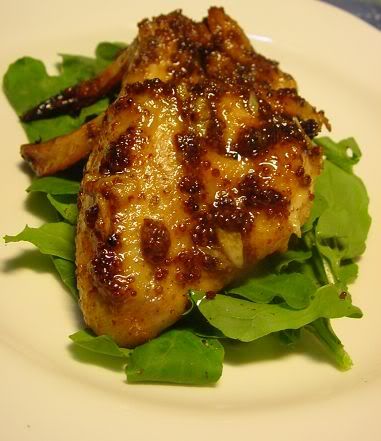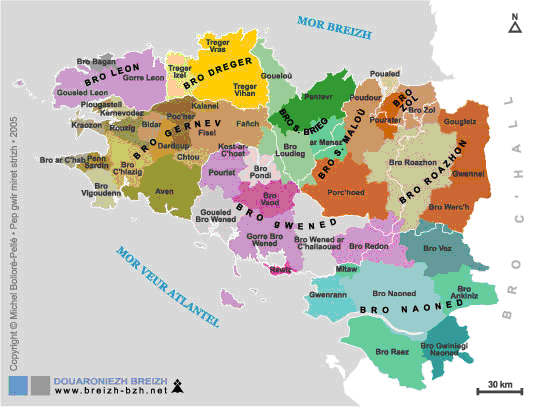Repression usually begets a strong desire to transgress what has been suppressed. If you starve someone of something coveted and yearned for, the person will stop to nothing to overcome the hurdles between the object of affection (or fixation) and him or her. Luckily my love for cooking has never had such pathological tendencies; the way I see it now is that it was an essential part of my quest for my personal freedom.
I grew up in a household where women outnumbered men. On the male side it was only Dad and I. The females were represented by my mother, grandmother, auntie and cousin. And from a very early age it was made very clear to me that the entrance to the kitchen was
verboten for both my father and I. In Cuba we have a name for men who wander into so-called women’s affairs, ‘
casueleros’, and so far I have never been able to find a translation in French, German or English. I must confess at this point that it never bothered me much for the first twenty-odd years of my life to be waited on by this large coterie of women, especially after my Dad left the family home when I was thirteen. Call it the alpha male effect, but I loved having my cake and eat it.
That all changed when I met my then girlfriend and now wife. Coming from a country like the UK with such liberal views on partnerships and the roles of both members of a relationship, she would not tolerate, I was sure, the argument that I was completely ineffectual in the kitchen. That I could not even break an egg properly (that will be another post, yes, it’s a real story). So, I pulled my socks up and decided to face up to the challenge. I began with my own house arrangements. I demanded (yes, dear reader/fellow blogger, I made my presence strongly felt) that I be allowed in the kitchen whenever it took my fancy. The first time I almost left with the mark of a frying pan on my bottom, courtesy of my late Nana and I won’t translate the words she used out of respect for you my dear readers, but if ever you’re studying Cuban Spanish and want to learn some slang words of the four-letter variety, drop me an e-mail with a link to this post and I will graciously comply.
Where was I? Oh, yes, attempting to break into the fortress, sorry, the kitchen. After many efforts, I was nicely rewarded with small dents on the solid and staunch wall here and there. The change did not happen overnight, but at least I was allowed to cook my own omelettes. I must mention now that as we’re referring to Cuba’s darkest period in the economic crisis in the 90s, eggs were scarce, so any mistakes on my part were admonished severely.
After I became more confident in the kitchen I started trying out more recipes, which due to the situation I just described above, turned me into a very imaginative cook. I loved mucking about with various ingredients and making do with substitues
en lieu de the real product.
Thus, my then girlfriend and now wife and I never had any problems concerning cooking. She was and still is a great cook and loves trying new recipes, especially healthy ones.
The main reason why I’ve related this story to you is so that you understand why I like
Nigel Slater’s cooking so much.
Nigel has been
The Observer Newspaper’s cook-in-residence for over fifteen years and although I only came across his recipes about ten years ago when I started reading the paper, from the word go I knew I had found someone who liked food and the preparation of it as much as I did.
Nigel is a cook, not a chef. And there is an important difference between the two. The former is someone who cooks for pleasure and gets paid for that hobby. The latter is someone who swears on Channel Four (reference only for the dwellers of these isles).
He has authored seven cookery books, an autobiography and presented the BBC television series A Taste of my Life.
Moreover, Nigel is the type of down-to-earth person whom you would most likely invite to an away weekend with both your and his family and friends and whom you would probably catch red-handed at 2am in the downstairs kitchen tucking into the
chocolate and banana toffee pie you had made hours earlier for dinner. With a guilty but naughty smile on his face he’d probably say something along the lines of: ‘I’m sorry, I just couldn’t help myself... and I’m sorry to be a pain, but do you happen to have a bit of cream anywhere? And, by the way, do you fancy some of this?’ And there you are, torch in hand and hairs on the back of your neck standing to attention because you thought it’d been an intruder that had broken into your house, and all you can do is laugh your head off and sit down on the floor, back to the wall, to finish the toffee pie with Nigel… plus the cream on top.
As you will see from the recipe I am uploading this week his cooking is understated, straightforward stuff that is easy to accomplish, without a trace of what he affectionately calls ‘
cheffery’. He is not fond of fussy cooking and prefers simple suppers made with care and thought. He believes that making something good to eat for your self or for others can lift the spirits in the way little else can. “
There is something quietly civilizing about sharing a meal with other people. The simple act of making someone something to eat, even a bowl of soup or a loaf of bread, has a many-layered meaning. It suggests an act of protection and caring, of generosity and intimacy. It is in itself a sign of respect.”
Sweet and sticky chicken wingsThese little culinary wonders are strictly meant for picking up with your fingers, preferably while curled up on the sofa in front of the television. Although the mustard brings with it a certain amount of deep warmth, these are not at all spicy, and are for those who revel in an occasional sweet and extremely tactile supper.
Serves 2-3, depending on the size of your wings
chicken wings - 12 (about 600g)
grain mustard - 2 heaping tbsp
runny honey - a heaping tbsp
lemon - a large, juicy one
garlic - 3 large cloves
Heat the oven to 220 c/gas 7. Carefully check the chicken wings for stray feathers (they are often the least scrupulously plucked bit of the bird) then put them in a roasting tin.
Mix the mustard and honey with the juice from the lemon. You should get about 5 tablespoons from a large fruit. Peel the garlic, crush it and add it to the honey with a grinding of pepper and salt.
Toss the wings in the honey mixture and roast for 40 minutes by which time they will be a healthy colour. Turn the wings over and continue cooking for a further 10 minutes. They will now be dark and intensely sweet and sticky.
Such a yummy recipe deserves an equally reputable playlist. The only difference is that this week I've chosen movies over music. Find below clips from the movies I would be watching whilst tucking into this marvellous and scrumptious dish.
CabaretAmadeusEsperando la CarrozaIn the Line of FireLa Muerte de un BurocrataGlengarry Glen Ross
This photo was taken from the masak-masak blog
For earlier editions of Food, Music, Ad Infinitum columns click on any of the links below:
Food, Music, Food, Music, Food, Music, Food, Music, Ad Infinitum... (Cat's Crumbs/Migas de Gato)
Food, Music, Food, Music, Food, Music, Food, Music, Ad Infinitum... (Garlic Prawns)
Food, Music, Food, Music, Food, Music, Food, Music, Ad Infinitum... (Cashew, Prawn, Brazil Nuts and Lemon Rice)
Food, Music, Food, Music, Food, Music, Food, Music, Ad Infinitum... (Black Bean Soup)
Food, Music, Food, Music, Food, Music, Food, Music, Ad Infinitum... (Spicy Grilled Aubergine)
Food, Music, Food, Music, Food, Music, Food, Music, Ad Infinitum... (Chocolate, Banana and Toffee Pie)
Copyright 2008













